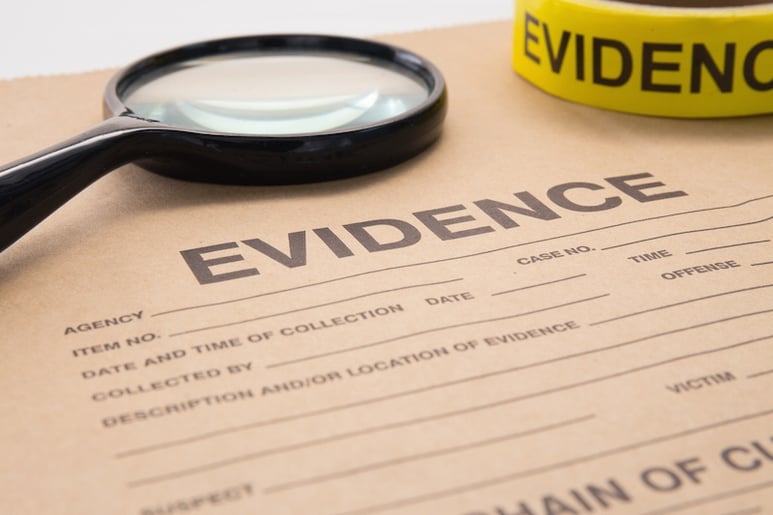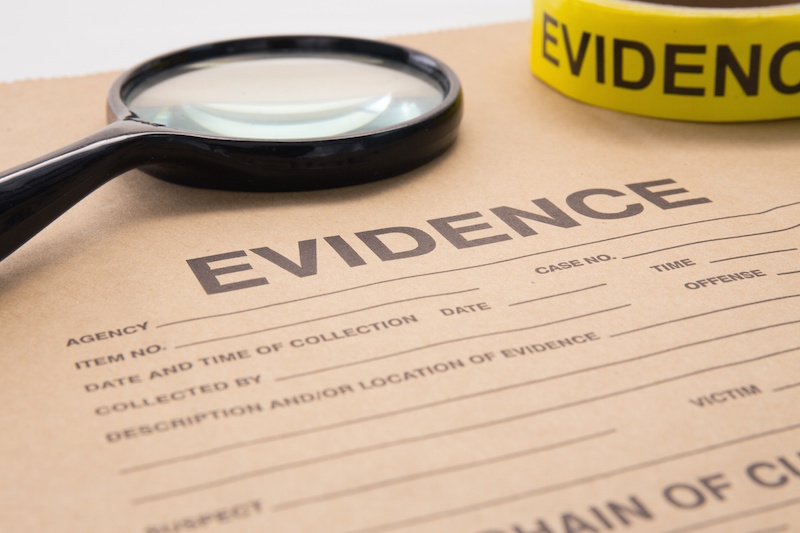There are various reasons for hiring a private investigator, ranging from asset search, locating people, theft and even background checks. Private investigators will be able to gather information and evidence that is pertinent to your case and assist in time sensitive cases. However, many individuals worry that the evidence found from a hired private investigator may not be admissible in court. Read this blog further to learn how a private investigator can help your case and if the evidence collected can be used in court.

Is The Evidence Admissible For Court?
It’s common for people to wonder if the evidence gathered from hired private investigators can be used and hold up in court. When done so correctly, the evidence gathered by a PI is not only legal but may make the difference between winning or losing a case. For this reason, it’s vital to only hire a professional private investigator who is licensed and has extensive training. As long as it has been gathered in a way that doesn’t break the law. That means that any conversations that the private investigator overhears or any pictures taken in public places are typically legal and admissible. There are some exceptions to consider such as whether or not the people involved have a reasonable expectation of privacy.
There will be legality issues however, if the evidence is not gathered correctly and laws were broken to obtain information. For this reason, it is very important to understand that a PI is not above the law. They must still behave in a manner that is legal and they should act with integrity. It's important to understand that a PI is not above the law. They must still behave in a manner that is legal and should act with integrity and professionalism.
What Types Of Evidence Can Be Collected?
Professional private investigators aid in many situations for attorneys to argue their case effectively. They are known most for locating people and assets as well as collecting the needed evidence. Working with a private investigator can help leverage your position to find creative and efficient ways to help improve their odds to win a case. The following are the main types of evidence that private investigators can provide to a case:
- Testimonial Evidence- this is either spoken or written evidence given by a witness under oath. It can be gathered in court or through an affidavit.
- Hearsay Evidence- this consists of statements made by witnesses who are not present. While hearsay evidence is not admissible in court, it can be relevant and valuable in a workplace investigation where the burden of proof is less robust than in court.
-
Documentary Evidence- this is documents that have been produced to be inspected in the courtroom. The documents can be real, original or hearsay.
- Physical Evidence- also known as real evidence, is evidence that is in the form of a physical object, such as a firearm or fingerprints from a crime scene. This can be presented in court as a physical object, shown in an image or video, or also referred to in documents.
- Original Evidence- this is a type of “out of court statement” that is presented for a applicable reasons. For Instance, such as to prove a person's mental state.
USI | Corporate Investigative Services
USI’s Investigations and Consulting Services is built on discretion, integrity and professionalism to ensure that every case, large or small, is handled accurately and timely. We provide cost-effective, efficient investigative services for a diverse range of clients including law firms, corporations, insurance companies, small businesses, government entities and individuals.
USI’s Investigations Division provides comprehensive investigative services including:
- Attorney’s Services
- Criminal/Civil Investigations
- Background Checks
- Executive Protection
- Fraud and Theft Investigation
- Physical Security Assessments
- Threat Assessments
- Undercover Operations
For more information, click below to contact us about working with a professional private investigator.


